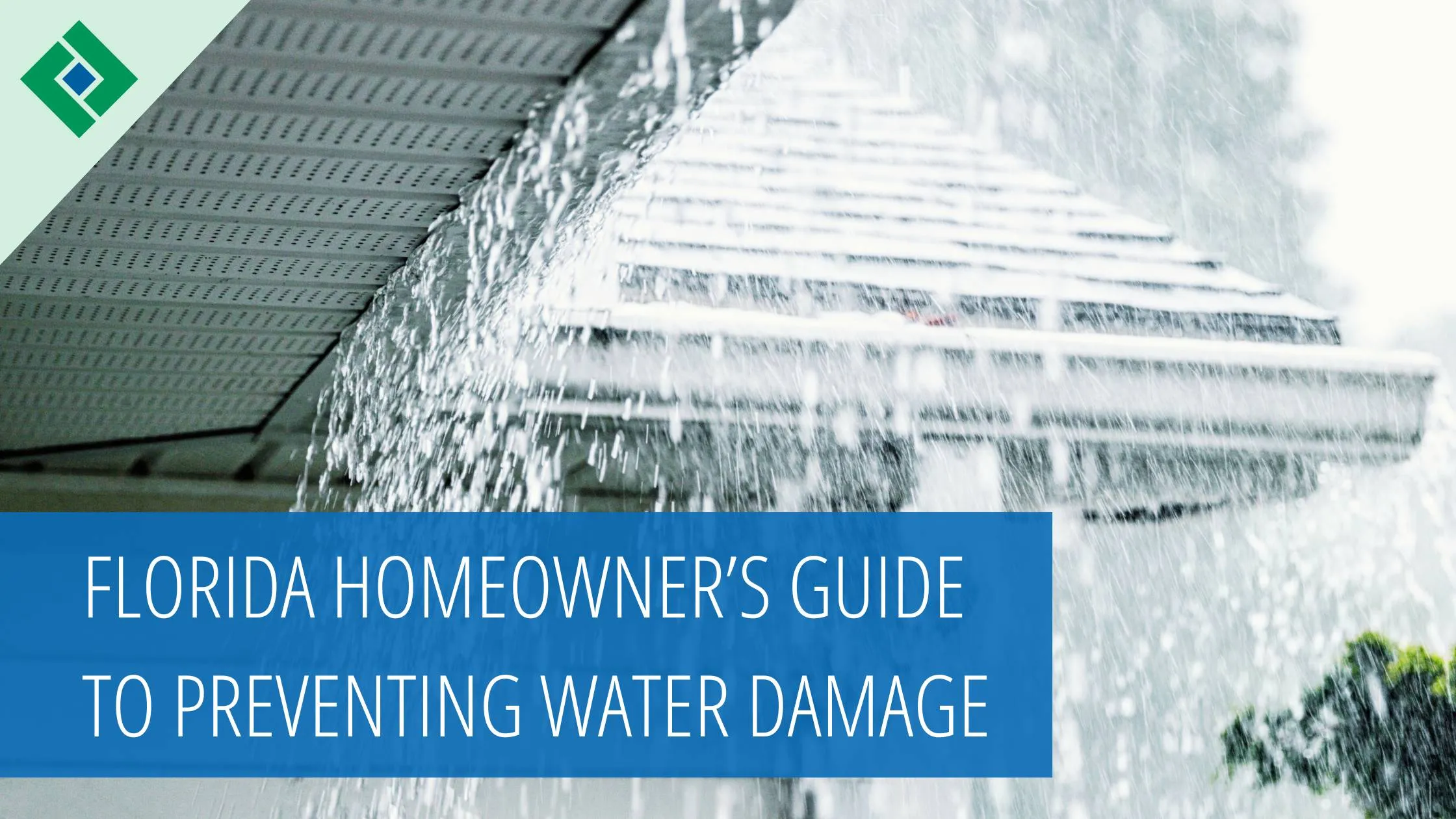Florida Homeowner’s Guide to Preventing Water Damage

When you come home after a long day, ready to relax, the last thing you want to do is step onto a soggy carpet or into puddles on the kitchen floor.
Water damage is especially insidious because it can sneak up on homeowners. And when it does, it can wreak havoc on both property and finances. The average cost to repair minor water damage events in the home can range from $1,300 - $5,600 – if you’re lucky enough to catch it early. Left unchecked, the repair costs can quickly escalate to tens of thousands of dollars.
Protecting your home from water damage isn't just about avoiding inconvenience; it's about preserving your sanctuary and your wallet. Let's dive into practical steps to help prevent water damage in the home.
First Line of Defense: Regular Home Maintenance & Inspections
Maintaining a vigilant eye on potential areas in the home where water damage is common can save you significant stress and money.
Plumbing
Inside your home, you’ll want to focus on key areas. Begin with monthly checks of your home's plumbing. Look for leaks under sinks, around toilets, and behind appliances like dishwashers and washing machines. Even a small drip can lead to substantial damage over time. A leaky faucet dripping at one drip per second can waste over 3,000 gallons of water per year, according to the Environmental Protection Agency. Regularly checking your water bill each month can help you identify when something might be amiss.
Windows & Doors
To help ensure water doesn’t leak into the home through doors or windows, take a look at each opening and seal & caulk around windows and doors where needed. If you notice cracks or gaps in the door or window frames, have those repaired immediately.
Roof & Gutters
Your roof is your home's primary defense against the elements. Ensure it remains intact by inspecting it annually for missing or damaged shingles or tiles. Clean gutters regularly to prevent clogs, which can cause rainwater to overflow the gutter and damage your home's foundation. Installing gutter guards can help minimize debris buildup – and a downspout extender can help water drain away from your home. (You could also adjust your landscaping to help reduce the likelihood of water pooling near your home.)
Bathrooms & Kitchens
Bathrooms and kitchens are the most common areas for water damage. Regularly inspect the caulking around bathtubs, showers, and sinks. If the caulking is cracked or peeling, replace it immediately to prevent water from seeping into the walls. Check for any signs of mold or mildew, as these can indicate ongoing moisture problems.
Attics: Out of Sight, Out of Mind
Attics are often neglected but can harbor significant water damage issues. Check for water stains on the ceiling of the attic, which could indicate a roof leak. Proper insulation and ventilation are crucial in these areas to prevent condensation and subsequent water damage.
Prevention Is Better Than Cure
One of the simplest yet most effective steps you can take is to know the location of your home's main water shut-off valve. In an emergency, such as a burst pipe, shutting off the water supply can prevent more extensive water damage. Make sure everyone in your household knows where it is and how to use it.
Technology can be a homeowner's best friend in helping to prevent water damage. Consider installing water detection devices or leak sensors near water heaters, washing machines, and other high-risk areas. These devices alert you to the presence of water before it can cause significant damage.
Understanding Water Damage in the Home
Water damage can arise from various sources, including burst pipes, faulty appliances, and roof leaks. It's important to differentiate between water damage and flood damage. While water damage typically refers to issues within the home (like plumbing failures), flood damage is caused by external water sources, such as heavy rain or storm surges, which cause rising water to enter the home. It's important to know flood damage isn't covered by standard homeowner insurance policies; you'll need to purchase a separate flood insurance policy.
The financial repercussions of water damage can be staggering. Just an inch of water in the home can cause a whopping $25,000 worth in damage. Regular maintenance and prompt repairs can prevent small issues from escalating into costly water damage repairs.
Protect Your Home With Florida Peninsula Insurance Company
Water damage is a formidable foe, but with vigilance and by taking certain proactive measures, you can safeguard one of your most valuable assets: your home. At Florida Peninsula Insurance Company, we're here to help you select the home insurance protections you need. Contact your agent today to review your coverage, or if you're not yet insured with us, get an online quote to see how we can help. Stay vigilant, stay prepared, and together we can keep your home safe from water damage.

